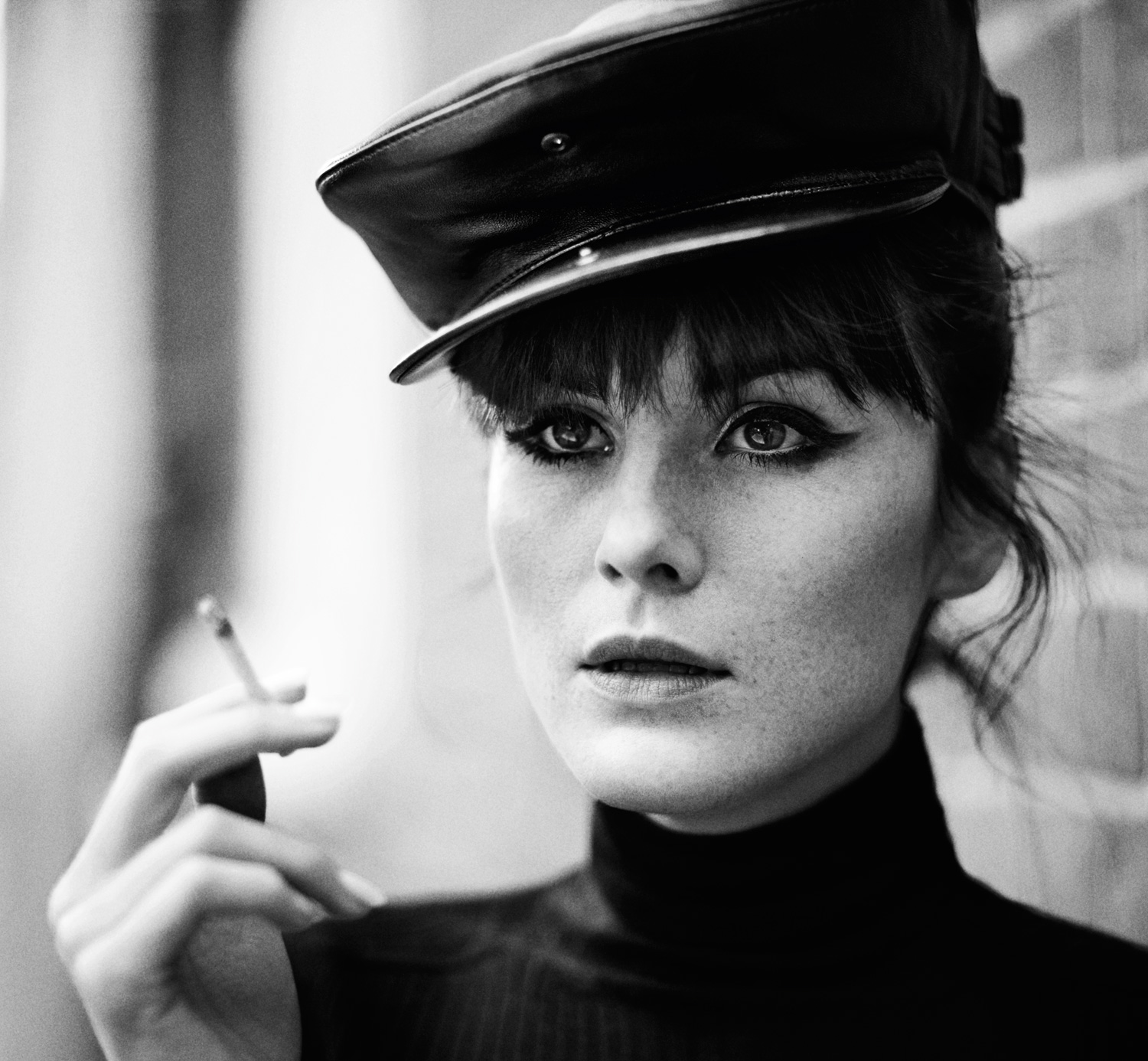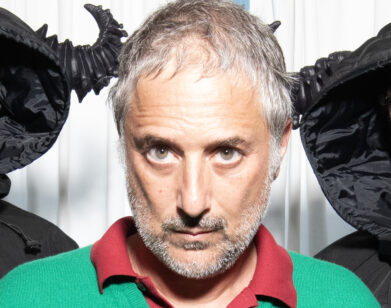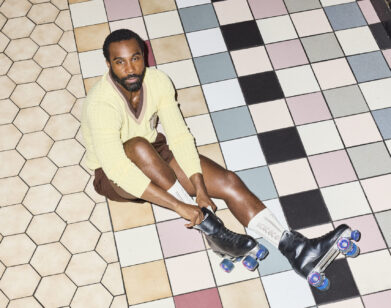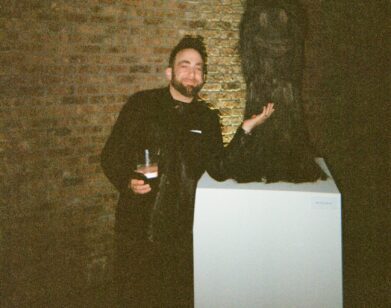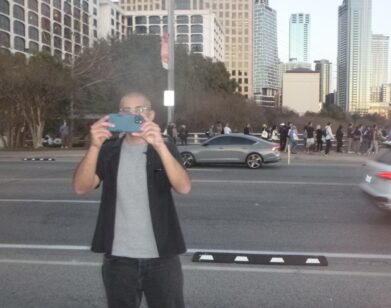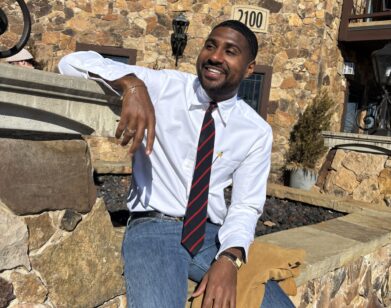Michelle Dockery
I’m dying to sing in a role, whether it’s in a musical or a biographical film about a singer. It’s always been one of my aspirations.Michelle Dockery
There is, of course, a lot to talk about when it comes to Downton Abbey, the compulsively watchable but frequently soapy British period drama series from writer-creator Julian Fellowes. The show, which is set in and around an English manor in the early part of the last century, features more than 20 characters—and at least as many story lines. But there is one character around which the others seem to circle: Lady Mary Crawley. Mary, who is played by actress Michelle Dockery, was introduced in Season One as the beautiful, imperious, and marble-cold eldest daughter of Lord and Lady Grantham; she mostly occupies herself with parlor games such as callously destroying her younger sister’s proposal, brazenly flirting with one man in front of another, and trying to avoid scandal after being seduced by a houseguest who then dies in her bedroom. But by the end of Season Two, Mary had evolved into a heroine to millions of impassioned viewers when, with the devastation of World War I and one conveniently dead fiancé behind them, Mary and her distant cousin, Matthew Crawley, finally realize that they’re meant for each other.
Through it all, Dockery has expertly captured the uncertainty of a young woman navigating the decline of the British aristocracy. But almost predictably, the actress’s own life has hardly resembled her character’s corseted Edwardian beginnings. Born in Essex, she trained as a singer and dancer, and, in her career thus far, has tackled everything from theatrical productions of Shakespeare to police crime dramas. Following her roundly praised performance as Eliza Doolittle in a 2007 stage production of Pygmalion, she was cast in the Red Riding trilogy, and last year, also appeared in the Joe Wright thriller Hanna. But it’s her role in Downton Abbey that has made her one of the most chattered-about women on television.
Season Three of Downton Abbey is set to air in the U.S. in January (the show started up again in the U.K. in September). Dockery also recently got back into a corset for Wright’s new film version of Anna Karenina, which stars Keira Knightley and Jude Law, and, for a change of pace, she donned a pair of bell-bottoms for the forthcoming BBC miniseries Restless, which is set partially in the 1970s. Elisabeth Moss, who stars as Peggy Olson in that other obsessed-over TV show set in the past, Mad Men, recently spoke to the 30-year-old Dockery.
ELISABETH MOSS: I feel like you and I sort of had similar careers in the sense that we’ve both been working for a very long time, but it wasn’t until Mad Men or Downton Abbey that we got the kind of recognition that comes from being in people’s homes. It’s interesting because my show is very American but has done quite well in the U.K., and your show is so British and has been incredibly well received here in the States. What do you think is the thing that makes your show appeal to people in the States and makes it so universal?
MICHELLE DOCKERY: What it boils down to is the writing. Julian [Fellowes] is incredibly talented. He’s created 18 lead characters, each with their own story lines. And it’s beautiful to look at—the costumes are stunning. The audience gets a nostalgic feeling for the period. It’s a time without the Internet, without mobile phones. It was an easier sort of period that people look back on and find very heartwarming.
MOSS: What’s brilliant about it, though, is that despite all the cultural and historical differences, what I connect to as a viewer are the stories that are completely relatable at any time—the Matthew and Mary story, the unrequited love, the complications.
DOCKERY: It’s something that everyone can relate to. I find that Mary is quite a modern woman, really, because she’s got her own mind and she won’t be told what to do. But she’s incredibly indecisive when it comes to her relationships with men. There’s also the struggle of women at the time because they’re kind of longing to do something. In the first season, we see the three sisters, and pretty much all they do is change clothes three times a day—once for breakfast, once for lunch, and then again at dinner. And they’re bored. What was wonderful about the second season is that because of the First World War, women became far more practical and useful. The character of Edith, for example, who helps care for wounded soldiers. But once the war is over, she finds herself at loose ends. In the third season, Edith really comes into her own. Another thing that I find relates to Mad Men is that a lot of the time, the show is very much about the women.
Downton abbey has become this huge thing, and i really enjoy the success of it, but i sometimes find myself on the outside looking in.Michelle Dockery
MOSS: One thing that was pointed out to me that was interesting—and I didn’t realize it—is that both Peggy and Mary harbor sex-related secrets. There’s Peggy with her secret pregnancy and Lady Mary with her little incident. They both carry around these very modern secrets that influence their lives.
DOCKERY: Watching the Peggy and Mary characters develop, and become far more vulnerable as people, the audience is in on their secrets. And apart from Don Draper on Mad Men and Cora and Anna in Downton, not everyone knows those secrets. And with Mary, she started out as this very cold, spoiled teenager. I’d never played a character like that, and when I first read the role, I assumed that that’s the way she would stay—a not very emotional, very tough aristocrat. And then, episode by episode, her character just softens, particularly in Season Two, because she discovers that she’s actually deeply in love with Matthew and is devastated to find that he’s engaged to someone else. By the third season, she’s a little bit more settled, and she and Matthew are finally together. But there are still some thrills and spills. It’s not all plain sailing with Matthew and Mary. It never is.
MOSS: I know that there’s a lot of anticipation for the Matthew-Mary wedding. What was it like dealing with all the attention while you were shooting and the paparazzi trying to get photos?
DOCKERY: The dress is so beautiful, and it may not be what people are expecting. I feel very strongly that people should see it when the episode airs. I wanted to save it, the producers wanted to save it, and so that day we were in this carriage, me and Hugh Bonneville [who plays the Earl of Grantham, Mary’s father], and the windows were all blacked out and there were paparazzi climbing trees trying to get a glimpse. I would have been really disappointed, actually, if someone had managed to get a snap of it. As much as the world wants to see it beforehand—
MOSS: But we don’t really. As a viewer, you want to be surprised.
DOCKERY: Yeah. It’s like your story line on Mad Men with Peggy leaving the agency. When I saw that, I called our mutual friend and I was in tears on the phone going, “No! Peggy can’t leave!”
MOSS: That was Episode 11. I didn’t know about Peggy leaving until [Mad Men creator] Matt [Weiner] called me while we were shooting Episode 10. He wanted to tell me before I read the script so that I knew that I wasn’t being fired. How much prior knowledge do you all have of what’s going to happen? What is the working relationship like with Julian and how much input do you have?
DOCKERY: When you’re working with such a great writer, you just have absolute trust in them. I get so excited about reading a new script. I’m sure you feel the same. But as far as input goes, I can call Julian on the phone if I need a bit of advice about a scene, and there is a bit of negotiation when it comes to big story lines, but it’s not collaborative, and I’m not a writer.
MOSS: That’s exactly how I feel. What I always say is, “Who am I to try to come up with this stuff?” Whatever they come up with is going to be far better than anything I could ever think of. Something happens that you could never have anticipated.
DOCKERY: I can be so blown away by story lines. Sometimes I’ll think, Oh, it could go this way or that way with Mary and Matthew. But then Julian writes something that I never would have thought of. I think it’s wonderful for an actor not to kind of anticipate a story line.
MOSS: The costumes in Downton Abbey are spectacular. I didn’t realize how quickly the time passes on the show until I saw this incredible arc of fashion. Are you enjoying the move into the 1920s, fashionwise, on the upcoming season?
DOCKERY: The third season is my favorite because the shapes are really changing. We’ve moved out of corsets, the waist drops—there’s a looser feel and it’s more adaptable to modern day. There are some things I wear on the show that I could actually get away with wearing today. There’s quite a leap from the second season to the third. I think everyone will notice that, particularly with the hairstyles. In the early ’20s, with the war over, there was a period of celebration, and you can see it in the fashion. But in the second season, most of which took place during the war, there was less jewelry and the eveningwear wasn’t as elaborate. Susannah Buxton, our fashion designer, really paid attention to that.
in the first season, we see the three sisters, and Pretty much all they do is change clothes three times a day.Michelle Dockery
MOSS: Everything was much more muted and almost utilitarian—you know, like what you can wear when nursing a soldier.
DOCKERY: Exactly. Now tiaras are featured far more, and diamonds. What’s interesting about the new season is that some characters can’t quite adapt to the rapid changes that occur after the First World War. There are certain characters, particularly Lord Grantham and, of course, Violet [Dowager Countess of Grantham], who are struggling with the new era. They find it difficult to adapt, whereas Mary goes along with the changes quite well in the third season.
MOSS: I want to talk about what else you’ve been up to. I know Anna Karenina is coming up. I’m a big fan of Joe Wright, and I worked with Keira Knightley for a few months on a Lillian Hellman play. I wanted to ask you about your experience on that film.
DOCKERY: I’ve worked with Joe before–I did Hanna with him. He’s such a fantastic director. Hanna was very modern, a thriller. But Anna Karenina was something very different. We worked with incredible dancers for some of the scenes.
MOSS: Had you ever danced before?
DOCKERY: Actually, I’m trained in dance.
MOSS: That’s so funny, I trained as a ballet dancer from age 5 to 15.
DOCKERY: Did you ever think you’d go into dance?
MOSS: Absolutely.
DOCKERY: I did, too. It was going to be either that or musicals, because I sing as well.
MOSS: I read that you were recording an album with your Downton Abbey co-star, Elizabeth McGovern. What’s happening with that?
DOCKERY: I’ve done a few gigs with Elizabeth. On set we discovered that we were both interested in music and we’d kind of jam out together in our trailers. It was quite a scene, us in our period costumes playing guitar. She asked me if I would sing backing vocals for a gig or two with her band, Sadie and the Hotheads. For their upcoming album, I recorded some vocals.
MOSS: You were talking about recording an album of your own stuff, weren’t you?
DOCKERY: Maybe eventually. I love singing live, actually. And I’m dying to sing in a role, whether it’s in a musical or a biographical film about a singer. It’s always been one of my aspirations.
MOSS: Your show has become one of the great staples of television in the U.K. and America. Is it something you ever anticipated?
DOCKERY: As with anything, you hope it carries to an audience at home. We all hoped the British audience would enjoy it, but I would never have imagined the success it has become elsewhere, particularly in the States. It’s quite overwhelming in some ways. Downton Abbey has become this huge thing, and I really enjoy the success of it, but I sometimes find myself on the outside looking in, which is sort of a healthy way to look at it, so you don’t get too caught up in it.
MOSS: We feel the same way because Mad Men is a show that we never really anticipated would be what it is— it’s like a little family that you go back to and film with every year. Do you feel like there has been a different reaction to your show in the U.S. than in the U.K.? Or has it been similar?
DOCKERY: Most of the time, it has been the same. I think it depends on where I am in the States, though. If I’m in L.A., people are far more confident to approach me if they see me. I think it’s something about Americans, that they’re not shy about coming over. I mean, people are just so genuine and so warm about the show. On Sundays, they sit down to watch it. It’s a lovely feeling that you’re part of people’s lives.
MOSS: You mentioned a little bit about Lady Mary’s arc and how she’s more settled, but is there anything else that you can share with us about the new season?
DOCKERY: I can’t, Lizzie. Is there anything you can tell me about Mad Men?
MOSS: No, obviously. Of course not. I can’t believe you would ask me that.
Elisabeth Moss will next appear on season six of Mad Men and in the Jane Campion–directed miniseries Top of the Lake.

